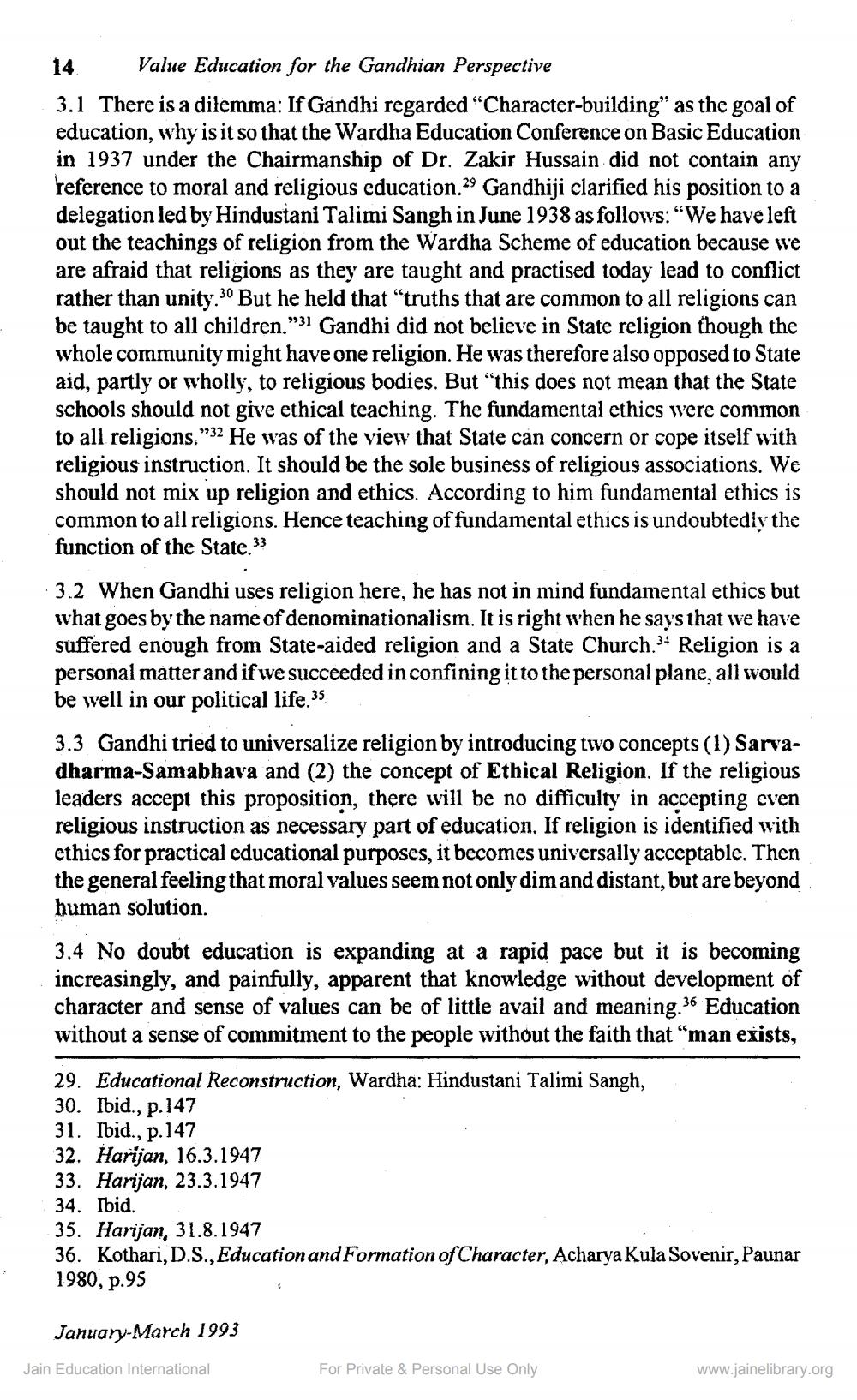________________
14.
Value Education for the Gandhian Perspective
3.1 There is a dilemma: If Gandhi regarded "Character-building" as the goal of education, why is it so that the Wardha Education Conference on Basic Education in 1937 under the Chairmanship of Dr. Zakir Hussain did not contain any reference to moral and religious education.29 Gandhiji clarified his position to a delegation led by Hindustani Talimi Sangh in June 1938 as follows: "We have left out the teachings of religion from the Wardha Scheme of education because we are afraid that religions as they are taught and practised today lead to conflict rather than unity.30 But he held that "truths that are common to all religions can be taught to all children."" Gandhi did not believe in State religion though the whole community might have one religion. He was therefore also opposed to State aid, partly or wholly, to religious bodies. But "this does not mean that the State schools should not give ethical teaching. The fundamental ethics were common to all religions."32 He was of the view that State can concern or cope itself with religious instruction. It should be the sole business of religious associations. We should not mix up religion and ethics. According to him fundamental ethics is common to all religions. Hence teaching of fundamental ethics is undoubtedly the function of the State.33
3.2 When Gandhi uses religion here, he has not in mind fundamental ethics but what goes by the name of denominationalism. It is right when he says that we have suffered enough from State-aided religion and a State Church.34 Religion is a personal matter and if we succeeded in confining it to the personal plane, all would be well in our political life. 35
3.3 Gandhi tried to universalize religion by introducing two concepts (1) Sarvadharma-Samabhava and (2) the concept of Ethical Religion. If the religious leaders accept this proposition, there will be no difficulty in accepting even religious instruction as necessary part of education. If religion is identified with ethics for practical educational purposes, it becomes universally acceptable. Then the general feeling that moral values seem not only dim and distant, but are beyond human solution.
3.4 No doubt education is expanding at a rapid pace but it is becoming increasingly, and painfully, apparent that knowledge without development of character and sense of values can be of little avail and meaning. 36 Education without a sense of commitment to the people without the faith that "man exists,
29. Educational Reconstruction, Wardha: Hindustani Talimi Sangh,
30. Ibid., p.147
31. Ibid., p.147
32. Harijan, 16.3.1947
33. Harijan, 23.3.1947 34. Ibid.
35. Harijan, 31.8.1947
36. Kothari, D.S., Education and Formation of Character, Acharya Kula Sovenir, Paunar 1980, p.95
January-March 1993
Jain Education International
For Private & Personal Use Only
www.jainelibrary.org




